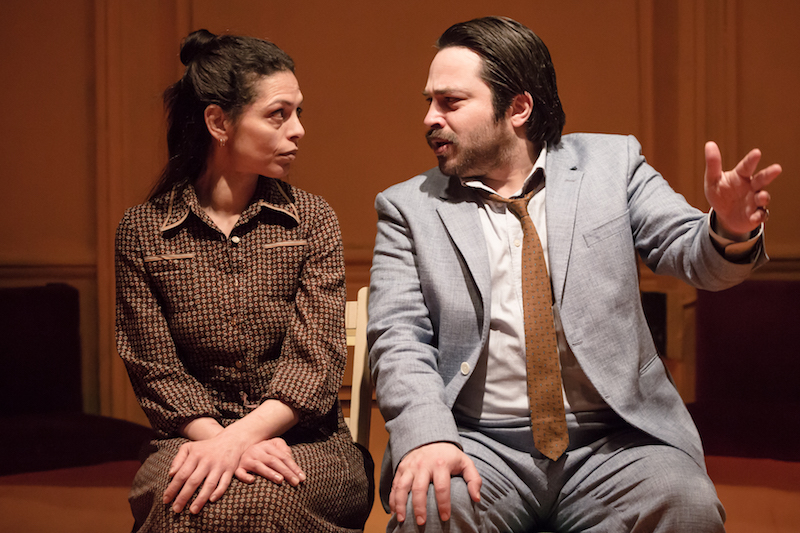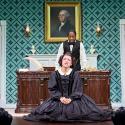This year the state of Israel marks its 70th birthday. Which means it will also be the year Palestinians remember the Nakba, the catastrophe, the mass dispossession. With that in mind, the Public Theater in New York commissioned this adaptation of a short novel by the acclaimed Palestinian writer Ghassan Kanafani, who was killed in 1972 by a Mossad car bomb.
Returning to Haifa was possibly the first work of fiction in which both sides of the divide were presented with equal sympathy. Kanafani’s novella traces the impact of the events of 1948 and their aftermath on two families – one Palestinian, the other Israeli – who are thrust into an intimacy none of them would choose. Too bad the play’s intended premiere was abandoned following political pressure from the New York theatre’s board. Enter West London’s tiny, gutsy, pub theatre the Finborough, to save the project. Only an auditorium as compact as the Finborough’s could have submitted to a total makeover in ochre-yellow emulsion, walls and floor. Designer Rosie Elnile has also reconfigured the space so that the audience is split into two unequal groups either side of a central playing area. This too is divided, by a translucent cheese-cloth drape which the play’s characters draw back or close at key moments. It’s an obvious symbol of partition, but more subtly, the curtain clouds and colours the spectator’s view just as cultural and political bias clouds and colours one’s view of any event, whether global or personal.
Only an auditorium as compact as the Finborough’s could have submitted to a total makeover in ochre-yellow emulsion, walls and floor. Designer Rosie Elnile has also reconfigured the space so that the audience is split into two unequal groups either side of a central playing area. This too is divided, by a translucent cheese-cloth drape which the play’s characters draw back or close at key moments. It’s an obvious symbol of partition, but more subtly, the curtain clouds and colours the spectator’s view just as cultural and political bias clouds and colours one’s view of any event, whether global or personal.
The pity is that Ismail Khalidi and Naomi Wallace’s adaptation fails to match that theatrical verve. The writers fatally complicate things by presenting the Palestinian protagonists in duplicate, both as a middle-aged couple in 1967 and as their newly married selves in 1948. It’s a novelistic device that doesn’t translate. It breeds confusion, despite the efforts of director Caitlin McLeod to streamline the action.
Myriam Acharki makes Saffiya’s silences more eloquent than the text
The story itself is simple enough. Said and Saffiya, who fled their home in Haifa in 1948, decide to return. It is 1967, and in the aftermath of the Six Day War the borders are open for the first time in 20 years. The couple are realistic enough to know that they are likely to find someone else living in their house. But they are unprepared for what has happened to the baby son they left behind – an act of carelessness or desperation that is never adequately explained.
One of the more successful scenes follows the couple on the hot, sticky car journey from Ramallah to Haifa. It’s full of telling detail about the couple, their history together, and the mix of familiarity and fear they experience on re-entering a city where every street name has changed.
Ammar Haj Ahmad’s husband is all bullishness and bluster, a man emotionally out of his depth. By contrast, Myriam Acharki (pictured above, with Ahmad) has a quiet focus that makes Saffiya’s silences more eloquent than the text. Overall, there are too many long monologues, murderously long. Ethan Kai makes a strong showing as Dov, the son whose adopted Jewishness, and army uniform, is the bombshell that drops on his birth parents at the mid-point of the story, but it’s dramatically a damp squib because we see it coming.
The play is more adept in presenting opposing tales of loss: the woman now living in Said and Saffiyah’s home is a Polish Jew whose family perished in Auschwitz. She arrived in Haifa with nothing, just as Said and Saffiyah fled Haifa with nothing. But the adaptation resorts to telling, not showing. There’s a powerful drama in there somewhere. It will take another draft to find it.















Add comment